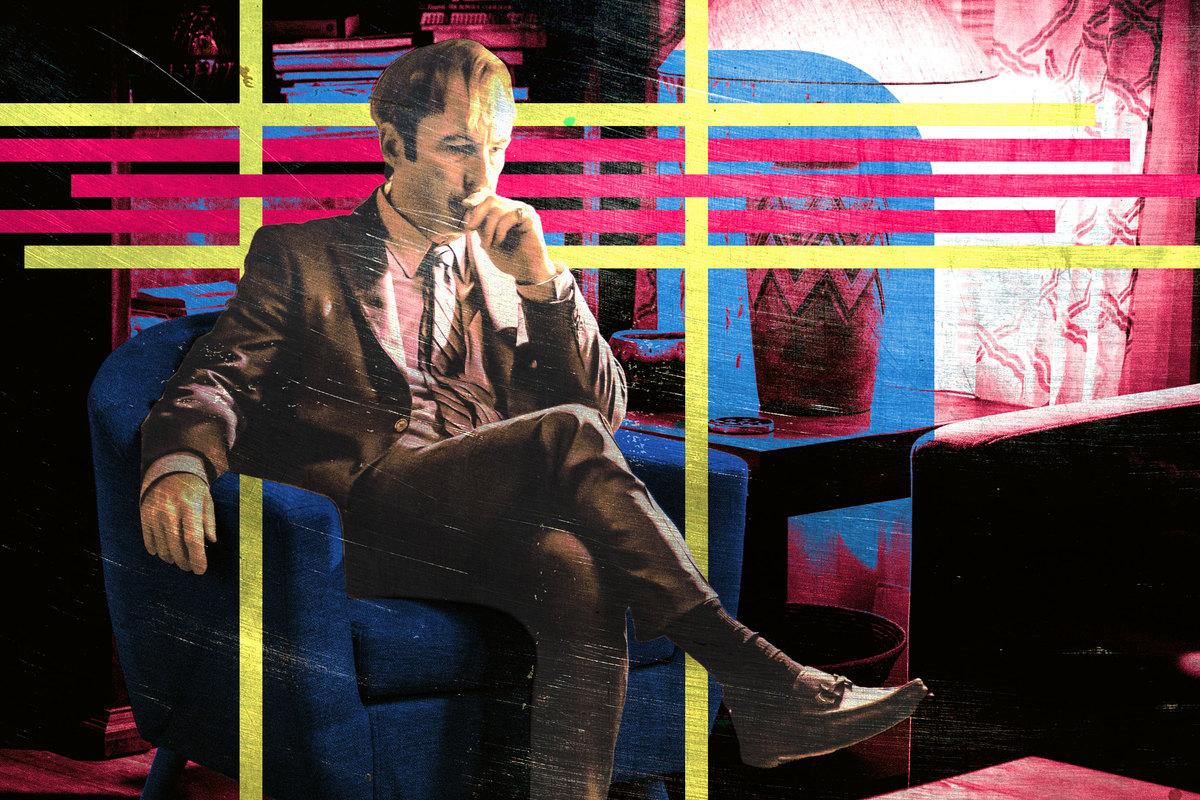As ‘Better Call Saul’ Breaks Bad, There’s No More Room for Fun and Games
With four episodes left in the series, Kim’s conscience is catching up with her

“It never ends.”
Mike Ehrmantraut is still mourning Nacho Varga’s death and how his mysterious absence looms over Nacho’s father, Manuel, so he decides to pay a visit to the upholstery shop owner midway through the ninth episode of Better Call Saul’s sixth season, “Fun and Games.” He wants to let Manuel know that his son will never be found, but also that he can take some solace in knowing that Nacho didn’t suffer and was a better person than the criminal underworld in which he became enmeshed. Most of all, Mike assures him that justice will come to the Salamanca family. Mike hopes that Manuel can be comforted by the promise of payback, but Manuel just sees it as a means of revenge that will involve the same violence in which his son got swept up to begin with. Instead of reassurance, Manuel laments that the cycle will never end. “You gangsters and your ‘justice,’” he tells Mike in Spanish. “You’re all the same.”
The fact that Manuel makes this observation in a prequel whose events and characters beget more violence in Breaking Bad underlines just how much nothing will change. (For all his seemingly noble intentions, Mike is still destined to get caught up in plenty of cartel business before being unceremoniously killed by Walter White.) But perhaps the first step toward redemption is acknowledging that there’s a problem and actually doing something about it.
After their elaborate con against Howard Hamlin backfires in deadly fashion, Jimmy McGill and Kim Wexler must maintain a sense of normalcy and go about their days like someone wasn’t just executed in the middle of their living room. To help get through the ordeal, Jimmy offers Kim the same wisdom that Mike once imparted to him after they were nearly killed in the New Mexico desert: Eventually, there will come a day when you no longer think about what happened. As far as the police are concerned, Howard killed himself by walking into the ocean amid growing rumors of a debilitating coke habit. Meanwhile, Mike and the rest of Gus Fring’s cleanup crew get to work on removing all traces of evidence from Jimmy and Kim’s apartment, but what weighs on Kim’s conscience can’t exactly be washed away with bleach.
While Kim puts on a good show at HHM during a memorial service for Howard, going so far as to make up a story to his widow that she once spotted him snorting lines of coke in his office, there’s a sense of finality in her exchange with Jimmy. As they leave the office and head toward their cars in the parking garage, she kisses him in a way that feels more like a remembrance than an act of passion. Sure enough, Kim goes to court and informs the judge presiding over one of her cases that a new lawyer will be taking her place. When the judge presses Kim to at least finish the hearing, she says she’s already informed the American Bar Association that she’s no longer practicing law.
By the time Jimmy rushes home that evening to try and talk her out of it, Kim has already packed up most of her belongings. “You asked if you were bad for me,” Kim says, alluding to the Season 5 finale. “That’s not it; we are bad for each other.” The complicity over a mutual colleague’s death is where Kim draws the line on their relationship. (As the episode’s title implies, it was all fun and games until Howard got hurt.) Like Nacho’s kindly father, Kim knows that nothing will change if she and Jimmy go on living their lives this way. But Kim’s admission of guilt goes beyond what happened to Howard: She also confesses that she knew Lalo Salamanca was still alive and declined to tell Jimmy. Kim kept Jimmy in the dark not out of concern over their wellbeing, but because she knew he’d want to call off the Howard scheme and get them somewhere safe. “I was having too much fun,” she says through tears.
After years of audiences speculating what would happen to Kim—and mostly being concerned that she’d meet a gruesome end prior to Breaking Bad—the good news is that she doesn’t seem fated to be buried somewhere like Howard and Lalo. Instead, she walked out on Jimmy before things took an even darker turn. The decision might seem a little anticlimactic in comparison to the series’ cartel-related fireworks, but it also makes sense within the context of Jimmy-cum-Saul in Breaking Bad. If Jimmy were responsible for Kim’s death, it’s hard to imagine him as a gregarious huckster wearing tacky suits—it’s way more on-brand that he’s putting on the theatrics to mask a deep reservoir of pain. Essentially, the man we see in Breaking Bad has pushed Jimmy aside and fully embraced Saul Goodman.
To that end, “Fun and Games” culminates with a flash-forward of Saul waking up in his garish mansion next to a random woman before heading to work. (This time, the office is exactly what it looks like in Breaking Bad, all the way down to the inflatable Statue of Liberty on the roof.) By all accounts, Better Call Saul has officially caught up with the events of its parent series; this outcome was never in doubt after cocreator Peter Gould previously revealed that Bryan Cranston and Aaron Paul would reprise their roles as Walter White and Jesse Pinkman this season. It’s still anyone’s guess what Saul will get up to between snippets of the Breaking Bad timeline and his future identity as a Cinnabon manager in Nebraska named Gene Takovic. That said, I would like to buy stock in “Kim will show up again in the Gene timeline.”
After several false starts, it appears Saul Goodman has finally subsumed Jimmy McGill. Kim, in her own way, accepted her culpability in an innocent person’s death, and the Saul transformation feels like a way for Jimmy to avoid accepting the consequences of his actions. (Who’s to say how many more people he’s doomed through legal grifting during the events of Breaking Bad?) But just because Saul was inevitable doesn’t make the series of events that led Jimmy to become him any less tragic.
For his part, Gould has been candid about originally planning to introduce Saul much earlier in Better Call Saul’s run before the series’ brain trust fell in love with Jimmy and kept him around longer. It’s easy to see why: Saul might be a charismatic con man, but Jimmy was a genuinely sympathetic figure. He entered the prequel wanting to make Chuck McGill proud by becoming a lawyer, but never received the love and validation that his spiteful brother bestowed upon a colleague like Howard. If you couldn’t excuse all of Jimmy’s antics, you could certainly understand their rationale. His devolution into Saul has been marked by many fateful decisions—some self-inflicted, others brought upon him—and none may be more devastating than the love of his life calling it quits on their toxic relationship.
As Better Call Saul enters familiar yet uncharted territory, some things are already set in stone. (Such is the challenge of making a prequel.) But while the needless cycles of violence that ended Nacho’s life are destined to repeat themselves in Breaking Bad, taking the likes of Mike and Fring along with it, Saul’s story is still being written. There remains a chance, however slim, that the man formerly known as Jimmy McGill can be redeemed—and perhaps reunite with Kim along the way. But with Better Call Saul closing the book on the prequel’s timeline, there’s no more room for fun and games.

